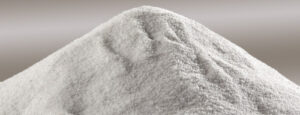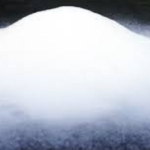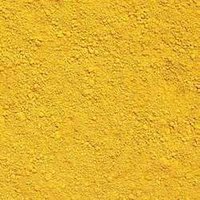Calcium Carbonate Grit is commonly used in animal and poultry feed, as well as in various other applications due to its beneficial properties.
Here are some of its uses and applications:
Animal and Poultry Feed: Calcium carbonate grit is primarily used as a source of calcium for animals and poultry. Calcium is essential for the formation and maintenance of strong bones, eggshell production, and overall animal health. It also aids in muscle function and nerve transmission.
Supplement for Eggshell Formation: In poultry farming, calcium carbonate grit is often provided to laying hens to ensure they have an adequate supply of calcium for forming strong and healthy eggshells. This helps prevent problems like thin or cracked shells.
Digestive Aid: Grit can also serve as a digestive aid for birds and animals that have gizzards, such as poultry. Gizzards use grit to grind down food particles in the digestive process, helping to break down and absorb nutrients more effectively.

Calcium Supplement: In addition to poultry, calcium carbonate grit can be used as a calcium supplement for other animals like reptiles and small mammals that require dietary calcium for bone health.
Soil Amendment: Calcium carbonate grit can be added to agricultural soils to improve calcium levels and raise soil pH, making it less acidic. This can enhance soil structure and promote healthy plant growth.
Antacid: Calcium carbonate is commonly used as an antacid in human medicine to relieve symptoms of heartburn, indigestion, and acid reflux. It can also serve a similar function in animals, helping to neutralize excess stomach acid.
Abrasive in Polishing and Cleaning: Calcium carbonate grit can be used as an abrasive agent in various cleaning and polishing applications. It is often found in toothpaste, household cleaners, and even some industrial polishing compounds.
Paint and Coating Industry: In the paint and coating industry, calcium carbonate is used as a filler and extender in various formulations. It improves the properties of paints, such as opacity, brightness, and viscosity.
Papermaking: In the papermaking process, calcium carbonate is used as a filler material to improve the paper’s whiteness, opacity, and smoothness. It can also enhance the paper’s printability and ink absorption.
Food Industry: In the food industry, calcium carbonate is used as a food additive (E170) to fortify products like breakfast cereals, calcium-fortified beverages, and certain types of confectionery.
Construction Industry: In the construction industry, calcium carbonate can be used as a filler in the production of concrete, mortar, and asphalt. It can enhance the durability and strength of these materials.
Environmental Applications: Calcium carbonate can be used in environmental applications to treat acidic wastewater, mitigate acid mine drainage, and neutralize acidic soils in remediation projects.
It’s important to note that the particle size and quality of calcium carbonate grit can vary, and the specific application may require a particular grade or type. Additionally, the dosage and application method can vary depending on the target animal or industry.
Calcium Carbonate Grit can also be used in composite materials and applications, particularly in industries where filler materials are needed to enhance the properties of composites.
Here are some uses and applications of calcium carbonate grit in the composite industry:
Reinforcement in Thermoplastics: Calcium carbonate grit can be added to thermoplastic polymers such as polypropylene and polyethylene to improve their mechanical properties. It enhances stiffness, dimensional stability, and impact resistance while reducing material costs.
Filler in Thermosetting Resins: In thermosetting composite materials like epoxy or polyester resins, calcium carbonate grit can serve as an inert filler to reduce the cost of the resin while maintaining or improving some mechanical properties like tensile strength and thermal stability.
Improving Surface Finish: In composite manufacturing, calcium carbonate grit can be used as a surface treatment to enhance the surface finish of composite parts. It can reduce surface defects and improve the paintability or adhesion of coatings.
Weight Reduction: When weight reduction is a priority, calcium carbonate grit can be added to composite materials to reduce their overall density. This is particularly useful in applications where weight savings are crucial, such as automotive and aerospace industries.
Thermal Conductivity Modification: Calcium carbonate grit can be used to modify the thermal conductivity of composite materials. Depending on the application, it can either enhance or reduce thermal conductivity, making it valuable in industries like electronics and construction.
Electrical Insulation: In some composite applications, calcium carbonate grit can be used to increase electrical insulation properties, making it suitable for components that require electrical isolation.
Reducing Shrinkage: Calcium carbonate grit can help reduce shrinkage in composite materials during curing or cooling processes, which can be beneficial in applications where dimensional stability is critical.
Cost Reduction: One of the primary reasons for using calcium carbonate grit in composite applications is cost reduction. It is often more affordable than other filler materials, making it an attractive option for industries looking to reduce production costs.
Controlled Expansion: In certain composite applications, especially those involving concrete or cementitious materials, calcium carbonate grit can be used to control the expansion characteristics of the composite, helping to prevent cracking or distortion.
Environmental Considerations: Calcium carbonate is generally considered environmentally friendly and non-toxic, making it a preferred choice in applications where environmental concerns and regulations are important.
It’s important to note that the specific application and formulation of calcium carbonate grit in composites can vary significantly depending on the desired properties and requirements of the end product. The particle size and distribution, as well as the processing methods, should be carefully considered to achieve the desired results in composite materials.









Reviews
There are no reviews yet.